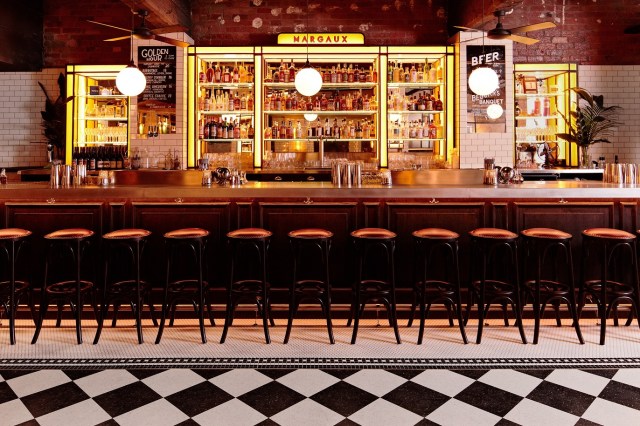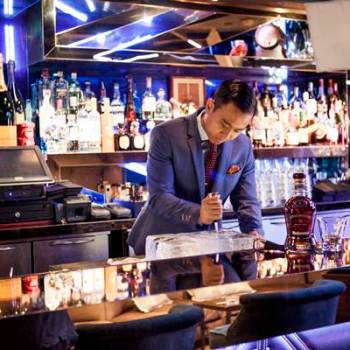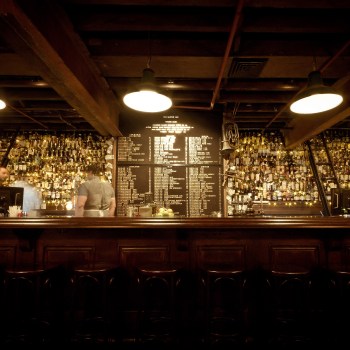Venues in Victoria were disappointed to hear that a spike in the state’s COVID-19 cases meant a return to stricter trading restrictions, including the continuation of a 20 person maximum capacity.
Venues were set to increase their capacities from 20 to 50 people per space yesterday, with the one person per four square metre rule still in place. However, Premier Daniel Andrews announced over the weekend that the 20 person cap would remain until at least July 12, as the new Coronavirus cases were the highest the state had seen in two months.
Also announced at the same time was the tightening of social distancing restrictions, reducing the amount of people allowed to gather in residences to five people.
Although Premier Andrews noted that the spike is largely driven by people gathering privately, rather than in public spaces like bars, the priority continues to be public health and limiting the spread further.
“I know this is not where we wanted to be. And that Victorians will feel disappointed and frustrated. I’m frustrated too. But we have to channel that frustration into action. We can’t let this thing get away from us. We must act – while we can,” he said.
That frustration is being felt across the hospitality industry, with many bars, pubs and restaurants counting on that capacity increase to give their business the vital boost it needs.
After hearing the news, Melbourne bar Beneath Driver Lane had to cancel their reopening plans, as operating with the 20 person capacity was simply not sustainable for them. Owner Hamish Goonetilleke told Bars and Clubs that the uncertainty was incredibly frustrating, given the changes made to the bar specifically so they could reopen under the new regulations.
“I feel like the goal posts keep moving. One minute it’s to serve alcohol you must provide substantial food, then one week out from opening with the 50 patron new limit, the government takes away the need for substantial food, then two days before reopening, suddenly we can’t open,” Goonetilleke said.
“Firstly, to provide substantial food we had to create a whole program around us… engage chefs, write a menu, work on a platform and format that we could market to customers. Then the government changes their stance on substantial food, throwing a whole curve ball at us. Now with the 20 PAX remaining, we’ve ordered food, ordered alcohol, and had to cancel over 330 bookings because I can’t operate a break-even business on 20 people.”
Similar frustration about the last minute change is felt at Mary’s Group, where Co-Founder Jake Smyth said the 20 person limit impacts the financial viability of venues.
“We’re a bit concerned about what is happening in Victoria, that has an effect on Mary’s Melbourne. We were just looking down the barrel of ‘amazing’ 50 people from today. It was going to make it not just an exercise in solidarity and bringing staff back to work, and a complete loss-maker,” Smyth told Bars and Clubs today.
“We’ve known since we opened it up again that it wasn’t a financially viable option at 20 people, but you’ve got to blow the cobwebs off. We wanted to get the staff back to work and our location in the city does make it difficult as well. We are going to power through and if it means we have to close it for another period then that’s what we have to do, but at the moment that’s not really part of the conversation we are having.”
As Australian Hotelier reported, Australian Venue Co is also frustrated by the last minute postponement of the capacity increase, which impacts their 31 pubs, bars, restaurants and venue spaces across Melbourne. CEO Paul Waterson said it will affect all areas of operation at these venues.
“As a business, we had been planning towards these increased capacities for weeks now. The increase from 20 to 50 customers per enclosed space is a significant one from a revenue perspective and to be given 48 hours to reverse this work is incredibly challenging. This impacts more than just our customer numbers; we have orders placed with suppliers, staff who were set to come back to work for the first time since March and a number of bookings and functions that we have now had to cancel,” Waterson said.
“These continual setbacks are having a material impact on hospitality businesses across the state. Restaurants, bars and pubs have been open for three weeks now with successful hygiene practices and contact tracing measures in place. Our venues are safer and more accountable than ever before. There needs to be a level of trust and support for responsible operators to manage the increased risk while still being able to trade with financially viable patron numbers.”
The Victorian Tourism Industry Council (VTIC) expressed their disappointment at how this would impact larger hospitality venues across the whole state. VTIC Chief Executive Felicia Mariani said it adds further stress to businesses through no fault of their own.
“The major area of concern for the industry is that the current restrictions make their business models unviable. These operators were looking forward to the planned increases in patron numbers in the hope of an improved business outcome. Today’s setback means this will not be happening for at least another three weeks,” said Mariani.
“What’s most disappointing is that this outcome is through no fault of our industry, which has been working tirelessly to find a way to comply with the new regulations. These operators are desperate to reopen and have done everything they can to safely welcome visitors back.”
But throughout the hard times and frustration, some venues are keeping positive. Director of Bad Frankie, Sebastian Costello, said it’s hard to have their capacity currently limited to 11, but they have to look on the bright side and work with their customers to keep people safe.
“It has been hectic with understanding all the regulations but my manager Oska has been doing a tremendous job at reading though all the guidelines and keeping up to date,” Costello said.
“I think the more you understand the restrictions and follow them and then don’t worry about them, the better. As a small business/bar owner you just have to get on with it. We all have to work together to make it safe for the community.”



